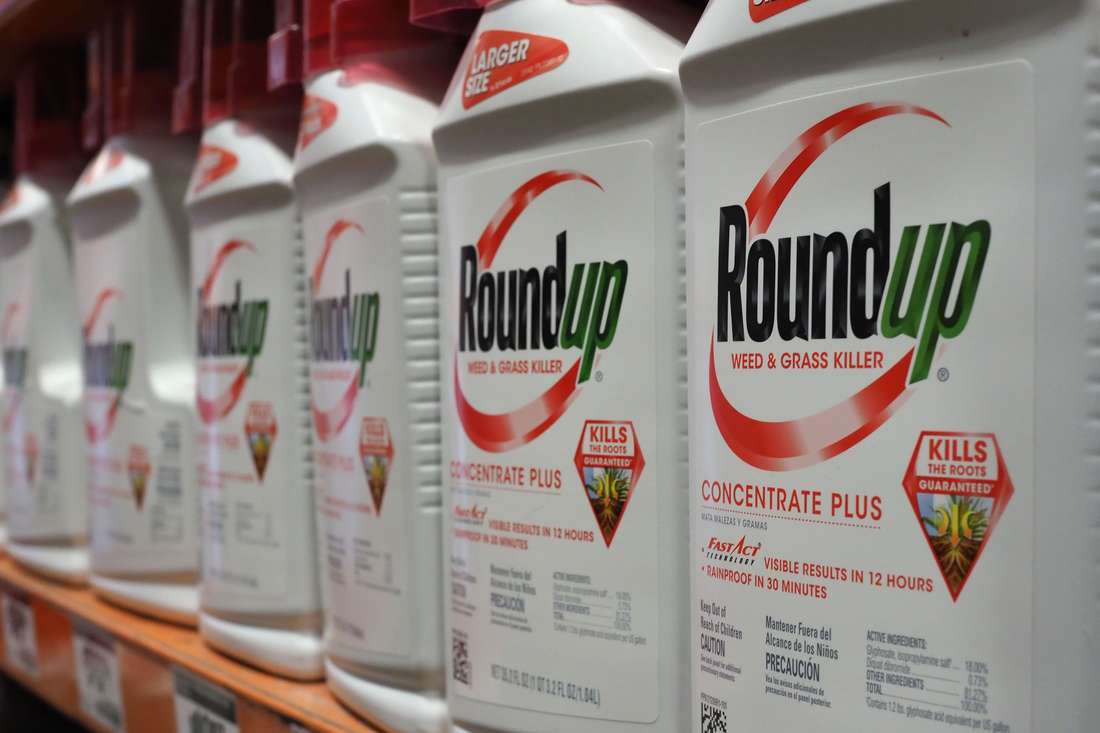News
Bayer The Company Selling Cancer Causing Herbicide To Pay $10B In Roundup Claims, Kenya Still Allows It

German chemical giant Bayer on Wednesday said it has agreed to pay over $10 billion in a mass settlement with American plaintiffs who say their cancers were caused by the Roundup weedkiller made by its Monsanto unit.
“The main feature is the US Roundup resolution that will bring closure to approximately 75 percent of the current Roundup litigation involving approximately 125,000 filed and unfiled claims overall,” Bayer said in a statement.
The deal, which still needs to be approved by a Californian court, would draw a line under a major headache for Bayer ever since it bought US firm Monsanto for $63 billion in 2018.
“The Roundup settlement is the right action at the right time for Bayer to bring a long period of uncertainty to an end,” said CEO Werner Baumann in a statement.
Roundup is a flagship Monsanto product containing glyphosate, a weedkiller tens of thousands of plaintiffs say caused their illnesses — with many suffering from the blood cancer non-Hodgkin’s lymphoma.
Bayer suffered a clutch of financially painful setbacks in first-instance US court rulings last year over the issue.
The German giant has held fast to reams of scientific studies and regulatory approvals it says prove Roundup’s main ingredient glyphosate is safe, but said when it released first-quarter earnings data in April that it “continues to engage constructively in the mediation process”.
The proposed settlement consists of a payment of $8.8 billion to $9.6 billion to resolve the current Roundup litigation, Bayer said, and $1.25 billion to address potential future litigation.
Kenya has, however, been sitting pretty despite the numerous farmers and farmhands who handle the chemical on a daily basis and the danger that this and other chemicals targeted at the agricultural industry pose at both the farm level and at dinner tables in homes. The country is awash with other herbicides that use glyphosate, the key ingredient in Roundup, and which is said to be cancer-causing.
The Kenya Bureau of Standards (Kebs) appears unmoved by the jurors’ verdict in the previous verdicts.
It is not the first time that State agencies have appeared unperturbed by similar developments in other jurisdictions, where legal systems and even regulators have strongly held multinationals to account for their mistakes that are detrimental to consumers.
An example is Johnson and Johnson whose popular baby powder is on the spotlight for containing cancer-causing asbestos.
Among the cases brought against the firm saw it ordered to pay $4.7 billion (Sh470 billion) to some 22 women who claimed the long-term use of the company’s baby powder led to ovarian cancer.
Kenyan authorities have, however, remained mum.
Kenya Insights allows guest blogging, if you want to be published on Kenya’s most authoritative and accurate blog, have an expose, news TIPS, story angles, human interest stories, drop us an email on [email protected] or via Telegram
-

 Americas6 days ago
Americas6 days agoEpstein Files: Bill Clinton and George Bush Accused Of Raping A Boy In A Yacht Of ‘Ritualistic Sacrifice’
-

 Business1 week ago
Business1 week agoCooking Fuel Firm Koko Collapses After Govt Blocks Sh23bn Carbon Deal
-

 Business6 days ago
Business6 days agoABSA BANK IN CRISIS: How Internal Rot and Client Betrayals Have Exposed Kenya’s Banking Giant
-

 Business3 days ago
Business3 days agoKRA Can Now Tax Unexplained Bank Deposits
-

 Investigations1 week ago
Investigations1 week agoPaul Ndung’u Sues SportPesa for Sh348 Million in UK Court, Accuses Safaricom Boss of Sh2.3 Billion Conspiracy
-

 Investigations2 days ago
Investigations2 days agoEpstein Files: Sultan bin Sulayem Bragged on His Closeness to President Uhuru Then His Firm DP World Controversially Won Port Construction in Kenya, Tanzania
-

 Americas6 days ago
Americas6 days agoEpstein Files: Trump Accused of Auctioning Underage Girls, Measuring Genitals and Murder
-

 News4 days ago
News4 days agoAUDIT EXPOSES INEQUALITY IN STAREHE SCHOOLS: PARENTS BLED DRY AS FEES HIT Sh300,000 AGAINST Sh67,244 CAP
















